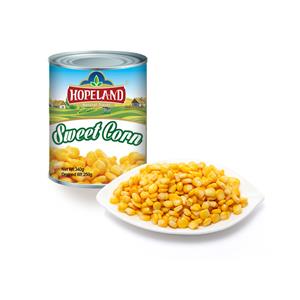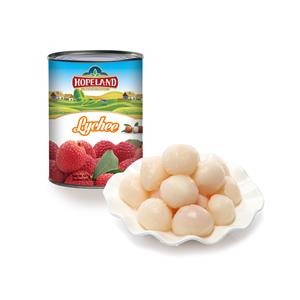Canned Fruit: Good or Bad?
As the cold weather sets in and fresh fruit becomes scarce, many people turn to canned fruit as an alternative. While canned fruit can be a convenient and affordable option, the question remains: is it a healthy choice? The answer depends on several factors, including the type of canning process, the added ingredients, and how you incorporate it into your diet. Let's explore the pros and cons of canned fruit and whether it can be a beneficial addition to your pantry.
Good? The Benefits of Canned Fruit
Canned fruit can be a healthy alternative to fresh fruit, especially when fresh options are out of season or too expensive. In fact, when chosen wisely, canned fruit can offer several nutritional benefits that rival or even surpass fresh varieties.
1. Nutrient Retention
Fresh fruit is often harvested while still under-ripe and shipped long distances, which can affect its flavor and nutritional content. The longer fresh fruit sits in storage or on store shelves, the more its vitamins, particularly vitamin C, degrade due to exposure to air and light. On the other hand, canned fruit is typically preserved shortly after harvest, which helps retain much of its vitamin content. According to the USDA’s Dietary Guidelines, adults should aim for at least two servings of fruit each day. Canned fruit, when stored in juice or water, provides a convenient way to meet this goal while maintaining high nutritional value.
While fresh fruit can lose vitamin C over time, canned fruit can still maintain a good amount of this essential nutrient, even months after being packed. This can make canned fruit a reliable source of vitamin C, particularly during the colder months when fresh produce is harder to come by.
2. Affordability and Convenience
Canned fruit is a cost-effective way to enjoy fruit year-round, especially when fresh fruit is out of season and prices soar. The ability to purchase canned fruit without worrying about spoilage due to ripeness or storage time makes it a convenient pantry staple. Plus, you can often find sales or coupons, making it even more affordable.
In addition to being budget-friendly, canned fruit is incredibly easy to store and doesn’t require refrigeration until opened. This can be a huge advantage for those who don’t have access to fresh fruit on a regular basis or want to stock up for the colder months.
3. Extended Shelf Life
Fresh fruit has a limited shelf life, with many types only lasting a few days or a week. Canned fruit, however, can be stored for months (or even longer) without losing its quality. This extended shelf life makes it an excellent option for meal planning, especially during times when fresh fruit isn’t available or affordable.
Bad? The Downsides of Canned Fruit

While canned fruit can certainly be a nutritious option, it’s important to note that not all canned fruit is created equal. Some varieties are packed with added sugars or preservatives that may outweigh their potential health benefits.
1. Added Sugars
One of the biggest concerns with canned fruit is the added sugar, especially in varieties packed in heavy syrup. These added sugars can significantly increase the calorie content and contribute to weight gain and other health issues like high blood sugar and heart disease.
For example, a half-cup serving of pears packed in their own juice contains around 60 calories and 12 grams of sugar. However, if the same pears are packed in heavy syrup, the calorie count rises to 100, and the sugar content jumps to 19 grams. The additional sugar comes from the syrup and can negate the health benefits of the fruit itself.
Fruit cocktail, which is often made up of a mix of different fruits, is another example where added sugars are commonly found. Many varieties are packed in syrup, and the artificial red coloring in the cherries used in fruit cocktail is another concern. When buying canned fruit, it's essential to read the labels carefully and choose those packed in water or juice rather than syrup to avoid unnecessary added sugars.
2. Artificial Additives and Colors
As mentioned, many canned fruits, especially fruit cocktail, contain artificial colors and preservatives. These additives may be used to enhance the appearance of the fruit, but they do not contribute to the fruit’s nutritional value. Some artificial colorings, like Red 40 (often used for cherries in fruit cocktail), may even have potential health risks for some individuals. To make a healthier choice, look for brands that use natural fruit juices or opt for canned fruit without artificial colors.
3. Risk of Botulism in Improperly Canned Fruit
Home-canned fruit, while a great way to preserve summer produce, can also pose a health risk if not prepared or stored properly. Improperly canned fruit may harbor harmful bacteria, including the botulinum toxin, which can cause botulism—a potentially fatal foodborne illness. To minimize the risk of botulism, avoid purchasing or consuming cans that are bloated, dented, or leaking. Always check the seal before opening a can, and discard any fruit that has an off smell or a foamy appearance.
4. The High Sodium Content in Some Varieties
In some cases, canned fruit may also contain high levels of sodium, especially if it is preserved with salt in addition to sugar. High sodium intake is associated with an increased risk of high blood pressure, stroke, and heart disease. Fortunately, you can find low-sodium or no-sodium-added options by reading the labels carefully.
The Bottom Line: Can Canned Fruit Be Part of a Healthy Diet?
Canned fruit can certainly be a part of a healthy eating plan, but it’s important to make mindful choices when shopping. Opting for fruits packed in their own juice or water instead of syrup can significantly reduce the added sugar content, making canned fruit a much healthier option.
Additionally, choosing brands that avoid artificial colors and preservatives can help you avoid potentially harmful additives. When it comes to home-canning, ensure that the fruit is processed correctly to minimize the risk of botulism.
While fresh fruit is always the best option, canned fruit can be an excellent alternative when fresh options are unavailable or out of season. It offers the same essential vitamins and minerals, along with the added benefits of convenience, affordability, and long shelf life. By reading labels carefully and choosing wisely, you can incorporate canned fruit into a balanced diet and enjoy the benefits of this pantry staple.
In conclusion, canned fruit is neither inherently good nor bad—it all depends on how it's prepared and what added ingredients are included. With a little attention to detail, canned fruit can be a healthy, nutritious, and cost-effective way to enjoy fruit all year round.





